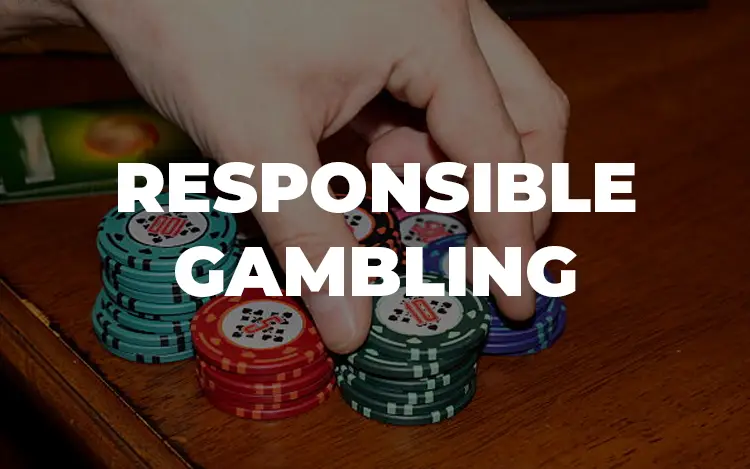Gambling advertising in the UK is under scrutiny. You cannot watch a football match, browse social media, or walk down the high street without seeing ads for bookmakers, casinos, or slots. While gambling is legal and regulated, many question whether ads encourage irresponsible behaviour or problem gambling.
Here, we examine both sides of the debate clearly and objectively. Is a blanket ban on gambling ads the best solution, or are there more balanced options? Spoiler alert: It is not black and white.
Why Is Gambling Advertising Under Fire?
Gambling ads are everywhere in the UK. Since the 2005 Gambling Act made online betting mainstream, advertising has skyrocketed. Operators spend millions each year promoting their brands on TV, online, and at sports events.
This exposure has sparked controversy. Critics argue that these adverts:
- Encourage irresponsible gambling.
- Influence vulnerable groups such as children or recovering addicts.
- Normalise gambling as harmless entertainment.
With UK gambling revenue hitting record highs—over £15.6 billion annually (April 2023 to March 2024, as per government data)—the debate around gambling ads and their impact is heating up.
So, with that in mind, let us approach it in the simplest way possible. First, we will present the argument in favour of banning gambling ads, and then, we will list the arguments against doing that.
Our recommended online gambling sites.
Arguments in Favour of Banning Gambling Ads
There are three key arguments here:
- Protecting Vulnerable Groups: Gambling ads often appeal to young adults and even minors. Platforms such as social media amplify this effect, raising the risk of exposure to underage audiences. A total ban would shield vulnerable groups. The idea is that this will help us reduce gambling harm in the nation.
- Reducing Problem Gambling: Advocates frequently argue that relentless advertising fuels problem gambling. Studies highlight links between high ad exposure and compulsive gambling behaviour. So, if ads are cut completely, this harmful influence could be significantly diminished.
- Addressing Public Health Concerns: The NHS and gambling addiction charities frequently link gambling ads with increasing addiction rates. Limiting ad exposure, they argue, would ease pressure on health services by reducing gambling-related harm.

Arguments in Favour of Banning Gambling Ads
Arguments Against Banning Gambling Ads
Here, too, we have three core arguments. Starting with the most mainstream and obvious one:
- Impact on the Economy: A total ban would hit operators hard. Advertising is crucial to brand awareness, player acquisition, and retention. Without ads, operators may lose revenue, which could negatively impact jobs and the overall economy.
- Funding for Sport and Media: Gambling companies are significant sponsors of UK sports teams and broadcasters. A complete ad ban could result in lost sponsorships, hurting football clubs, broadcasters, and related businesses.
- Regulated Ads Promote Responsible Gambling: Rather than banning ads entirely, tighter regulation might offer a better solution. The UK Gambling Commission (UKGC) enforces strict advertising rules, such as prohibiting misleading promotions or targeting minors. More effective enforcement could balance player protection with operator rights.
Expanding on the third point—the UKGC has already done a lot in this direction. Maybe the correct solution is to do more research into how a better strategy can be implemented. For example, when the “High Stakes” whitepaper was finally published in April 2023 (PDF version), we saw that the UKGC had already talked with Google about ads run by online gambling sites in the UK, which led to a complete ban on paid ads promoting the “not on GAMSTOP” tag.
This brings us to the question:
Is There a Balanced Approach?
An outright ban may seem straightforward, but a more nuanced solution is a smarter bet (pun not intended). The UK government and regulatory bodies are already exploring potential measures, including:
- Time-based restrictions, such as limiting gambling ads to late-night TV slots
- Social media restrictions, including stricter rules around targeting and age verification on platforms such as Instagram or Twitter
- Better responsible gambling messaging, which means clearer and more prominent responsible gaming warnings, communication, awareness campaigns, etc.
What these measures will do (once implemented fully) is allow legitimate gambling operators to advertise responsibly, while also reducing risk to vulnerable audiences.
Lessons from Other Markets
Often, when we talk about problem gambling and related issues in the UK, we are quite short-sighted and think of it as a completely local problem. The comparative maturity of the UK gambling market aside, and while it is true that local problems require localised solutions, it is a grave mistake not to learn from what other regions have done in the space. Particularly, stuff that could be relevant to the UK player base.
There are three main examples we can learn something from.
Italy imposed a complete ban in 2019, but early data suggests gambling-related harm remains high, driven by black-market operators. Australia, on the other hand, went with tighter regulations only (such as ad bans during sports events), resulting in fewer complaints about gambling exposure among young people. Sweden opted for balanced regulation, implementing clearer advertising rules without a total ban, thus maintaining operator viability and consumer protection.
The UK's regulators could use such international examples to guide their decision-making.
What Could This Mean for Players?
For UK gamblers, tighter ad rules or bans could have mixed effects. Positives include:
- Less exposure to aggressive marketing.
- Reduced risk of developing problematic gambling habits.
- Safer environment, especially for young adults and vulnerable individuals.
But there are potential negatives to this as well:
- Reduced awareness of regulated and trustworthy operators.
- Players might inadvertently turn to unlicensed offshore platforms, putting their financial security and data at risk.
How Responsible Gambling Comes Into the Picture
Regardless of advertising policies, promoting responsible gambling remains essential. Operators and regulators have a shared responsibility to educate players about healthy habits, offering tools such as deposit limits, self-exclusion, and reality checks.
Even though UKGC-licensed online casino sites already offer all this (as it is required by law), including the participation in the national self-exclusion program GAMSTOP, there is always room to do more—and go beyond what the guidelines say.
Some casino sites have done really well in this regard. For example, many of the reputable and best gambling sites in the UK truly care for their customers’ experience and want to help them avoid problem gambling. They introduce new, innovative mechanics within their platforms that keep them from spiralling downward.
However, not everyone is the same. Casino sites should realise sooner rather than later that it is a shared responsibility to care for the British population. If problem gambling gets out of hand, it does not help their profit margins either over the long run, because it could lead to severe bans or even a financial crisis.

How Responsible Gambling Comes Into the Picture
The Bottom Line
The debate on banning gambling ads in the UK is complicated. On one hand, player protection is paramount, and the industry’s critics have valid concerns. On the other hand, a complete ban could have unintended negative impacts on players and legitimate operators alike.
Perhaps a middle ground, involving tighter, targeted regulation alongside stronger responsible gambling measures, is the most practical way forward. Whatever the solution, the focus must remain on creating a secure, responsible gambling environment for all players.








